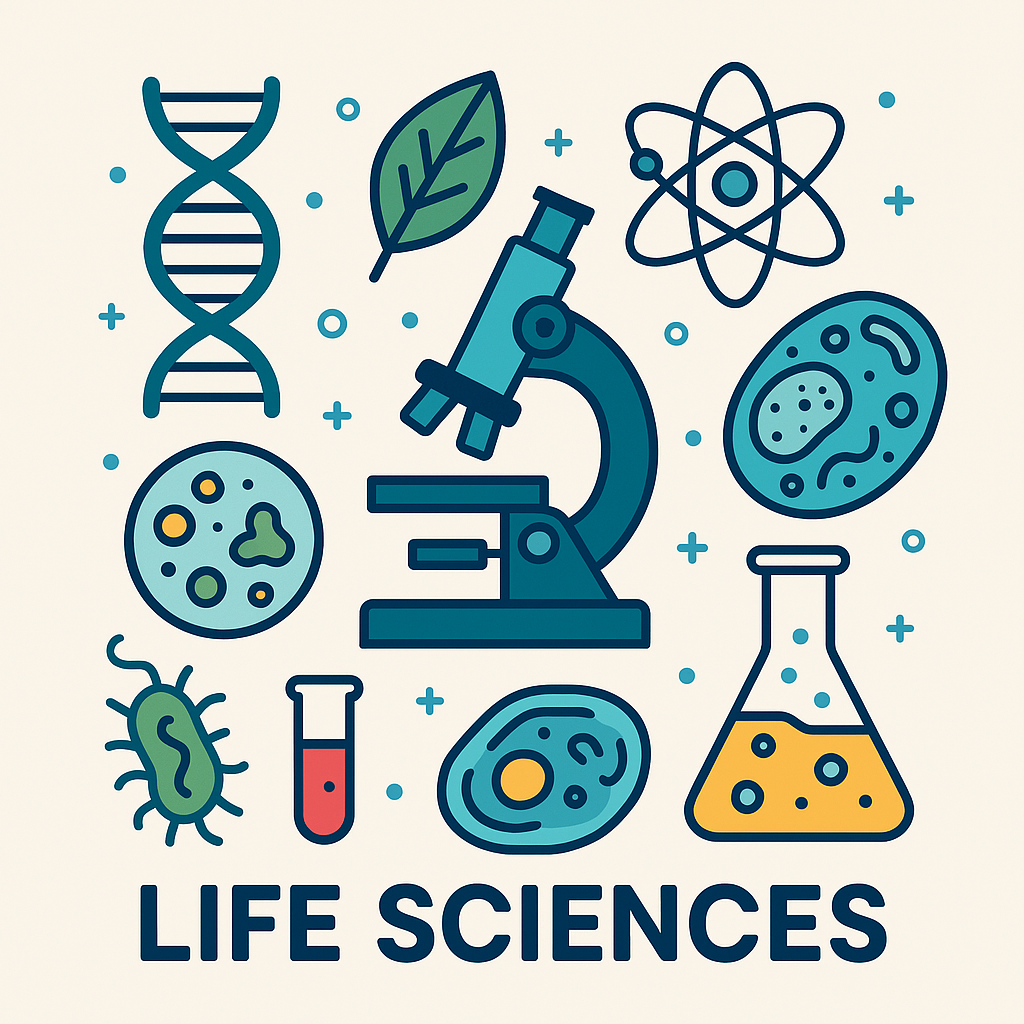The life sciences sector has seen tremendous growth over the last few decades, driven by innovations in biotechnology, molecular biology, genetics, environmental science, and pharmaceuticals. With increasing global investment in research and development, there's a growing demand for skilled professionals who can contribute meaningfully to these fields. If you're a student, graduate, or early-career professional looking to specialize or switch fields, certificate courses in life sciences offer a practical and focused route to building industry-relevant expertise.
What Are Certificate Courses in Life Sciences?
Certificate courses in life sciences are short-term, skill-based programs designed to provide intensive training in specific areas such as molecular diagnostics, microbiology, biotechnology techniques, genetic engineering, bioinformatics, and clinical research. These programs are ideal for individuals who already have a background in biology or a related field and want to gain specialized knowledge and hands-on experience that is directly applicable to real-world job roles.
While traditional degree programs offer broad and theoretical knowledge, certificate courses are more practical and job-oriented. They often include laboratory training, case studies, project work, and exposure to industry practices. This makes them highly attractive to employers looking for candidates who can be productive from day one.
Why Choose a Certificate Course in Life Sciences?
There are several reasons why pursuing a certificate course in life sciences can be a smart move for your career:
1. Job-Oriented Training
Most certificate courses are designed in consultation with industry experts. They focus on imparting skills that are directly relevant to the job market. Whether it's PCR testing, DNA sequencing, ELISA, cell culture, or microbial analysis, you'll be learning the tools and techniques that are in high demand in laboratories and biotech firms.
2. Time Efficiency
Unlike a full-time degree that takes years to complete, certificate courses are typically short-term, ranging from a few weeks to a few months. This allows you to upgrade your skills without putting your education or job on hold for an extended period.
3. Cost-Effective
Certificate programs are generally more affordable than full-time academic degrees. This makes them an attractive option for students and working professionals alike, especially those looking to gain specific skills without incurring heavy financial burdens.
4. Hands-On Experience
One of the biggest advantages of certificate courses in life sciences is the emphasis on practical training. You'll spend significant time in labs, working with real samples and equipment. This hands-on exposure not only strengthens your understanding but also boosts your confidence in working independently in a lab environment.
5. Bridge to Industry
Many certificate programs include industry internships or projects that provide valuable exposure to actual work settings. This helps you build a network, gain references, and possibly land a job at the end of the program.
Who Should Enroll?
Certificate courses in life sciences are ideal for:
- Undergraduate and postgraduate students in biology, microbiology, biotechnology, or biochemistry who want to enhance their skills and employability.
- Working professionals in pharma, diagnostics, or healthcare who want to upskill or shift to a more technical role.
- Career switchers from allied sciences or healthcare backgrounds looking to enter the life sciences industry.
- Researchers or lab technicians wanting to gain expertise in a new technique or technology.
Career Opportunities After Completing a Certificate Course
Once you've completed a recognized certificate course, a range of exciting career options may open up to you. Some of the most sought-after roles include:
- Research Assistant or Lab Technician: Assist in scientific experiments, analyze data, and maintain lab equipment.
- Molecular Biologist: Work with DNA/RNA-based technologies like PCR, cloning, or gene editing.
- Microbiologist: Analyze microbial samples for pharmaceuticals, food safety, or diagnostics.
- Clinical Research Associate: Manage and monitor clinical trials and regulatory compliance.
- Biotech Quality Analyst: Ensure product safety, efficacy, and compliance with industry standards.
- Bioinformatics Analyst: Use software tools to analyze biological data, often in genomic or proteomic studies.
- Diagnostics Lab Technologist: Work in hospitals or private labs, conducting tests for various diseases.
Key Topics Typically Covered
While the exact curriculum varies based on the course provider and specialization, most certificate courses in life sciences cover topics such as:
- Molecular biology techniques (PCR, electrophoresis, blotting)
- Cell and tissue culture methods
- Microbial culturing and identification
- DNA/RNA isolation and analysis
- ELISA and immunoassays
- Genetic engineering and cloning
- Laboratory safety and SOPs
- Bioinformatics and data analysis
- Good Laboratory Practices (GLP) and documentation
Courses often conclude with an assessment or a mini project that helps evaluate your grasp of the subject and provides a tangible output for your resume or portfolio.
What to Look for in a Good Certificate Course?
When selecting a certificate course in life sciences, keep the following criteria in mind:
1. Industry-Relevance
Make sure the course covers current and in-demand techniques. Check if the curriculum is regularly updated to match industry standards.
2. Hands-On Learning
Opt for courses that include extensive lab sessions or real-time project work. The more practical exposure, the better.
3. Faculty Expertise
Courses taught by industry professionals or experienced scientists usually offer more practical insights and career advice.
4. Certifications and Recognition
Choose courses that provide a recognized certification. This adds weight to your resume and boosts your credibility in job interviews.
5. Placement Assistance
Some programs offer help with job placements, resume building, or connecting you with recruiters. This can be especially valuable if you’re entering the industry for the first time.
Final Thoughts
In today’s competitive job market, having a strong academic background is no longer enough. Employers value practical experience, job-specific skills, and the ability to contribute to real-world projects. That’s where certificate courses in life sciences come into play.
By enrolling in a well-structured and industry-aligned certificate course, you're not just learning—you’re transforming your career potential. Whether you're aiming to land your first job, change your career direction, or move up the ladder in your current role, these programs offer a smart, efficient, and effective pathway forward.

